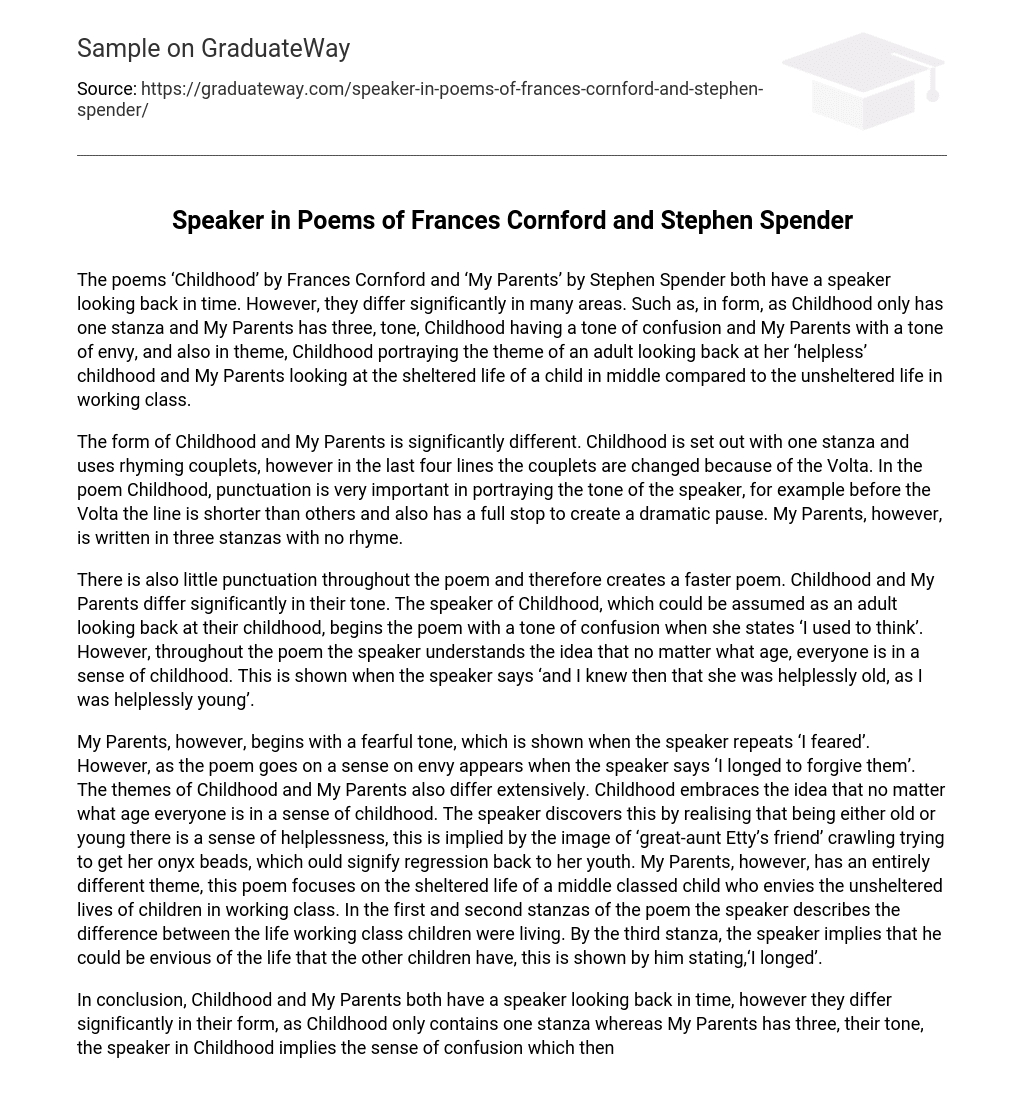The poems ‘Childhood’ by Frances Cornford and ‘My Parents’ by Stephen Spender both feature a speaker reflecting on the past. However, they differ in several aspects, including their form, as Childhood consists of one stanza while My Parents has three stanzas. The tone also varies, with Childhood conveying confusion and My Parents evoking envy. Additionally, the poems address different themes: Childhood explores an adult’s perspective on their vulnerable childhood, whereas My Parents contrasts the protected upbringing of a middle-class child with the harsh realities faced by the working class.
The poetry forms used in Childhood and My Parents are quite different. Childhood is structured with one stanza and utilizes rhyming couplets, although the last four lines deviate from this pattern due to the Volta. In Childhood, punctuation plays a significant role in conveying the speaker’s tone. For instance, before the Volta, a shorter line with a full stop creates a dramatic pause. On the other hand, My Parents is divided into three stanzas and does not employ rhyme.
There is minimal punctuation in the poem, which contributes to its fast pace. The tone of Childhood differs from that of My Parents. The speaker in Childhood, who may be an adult reminiscing about their past, starts the poem with a tone of bewilderment when they say ‘I used to think’. However, as the poem progresses, the speaker grasps the concept that regardless of age, everyone experiences a state of childhood. This is evident when the speaker states ‘and I realized at that moment that she was incredibly old, just as I was incredibly young’.
The speaker in My Parents begins with a fearful tone, repeatedly expressing their fear. However, as the poem progresses, a sense of envy emerges as the speaker longs to forgive their parents. In contrast, Childhood explores the idea that everyone experiences a sense of childhood regardless of age. The speaker discovers this by recognizing the helplessness present in both the old and the young, symbolized by the image of ‘great-aunt Etty’s friend’ crawling to retrieve her onyx beads, which could represent a regression to youth. My Parents, on the other hand, focuses on the sheltered life of a middle-class child who envies the less protected lives of working-class children. The first and second stanzas describe the differences in their lives, while in the third stanza, the speaker implies their longing for the other children’s lives.
To sum up, Childhood and My Parents share a common thread of reflecting on the past. However, they diverge in their structure; Childhood consists of a single stanza, while My Parents spans three. The tone in Childhood transitions from confusion to understanding, whereas My Parents explores the concept of envy from a middle-class child’s perspective, characterized by sheltered and controlled circumstances. In contrast, the latter poem juxtaposes this experience with that of working-class children, who face less protection and oversight. Notably, both works convey messages about the universality of childhood experiences, regardless of age.





